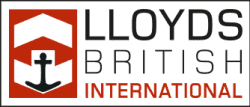Overview of the LOLER 1998 and other key legislation that affects equipment in the work place
What equipment falls under LOLER 1998?
Lloyds British International have a team of highly qualified and experienced engineers are able to provide engineering inspection, testing, and certification services across the globe on all types of equipment which require a thorough examination under LOLER 1998, PUWER 1998, WAHR 2005, PSSR 2000, and COSHH 2002. Through nearly 200 years of experience Lloyds British International have become experts in LOLER 1998 and other relevant legislation. Within this article we give a brief overview of the different types of legislation that effects equipment and also the reason as to why it is in place. If you would prefer to get advise from one of teams please visit our contact us page. This includes Lifting Equipment and Accessories, Work Equipment, Mobile Plant Equipment, Access Equipment, Pressure Systems, Local Exhaust Ventilation, Passenger and Goods Lifts, and Industrial Doors.
Examples of Where These Regulations Apply

Lifting Equipment and Accessories (LOLER 1998)
Under the Lifting Operations and Lifting Equipment Regulations ( LOLER 1998), lifting equipment and accessories used for lifting must have a statutory inspection every 6 or 12 months, depending on the type of equipment. This is often referred to as a ‘Thorough Examination’, ‘Testing’, or an ‘Insurance Inspection’.
Typical Lifting Equipment and Accessories which require a thorough examination at set intervals includes, but is not limited to:
- Fibre Slings
- Shackles
- Eyebolts
- Hooks
- Wire Ropes
- Chain Slings
- Chain Blocks
- Lever Hoists
- Manual and Electric hoists
- Pull Lifts
- Overhead Gantry Cranes
- Lifting Frames and Beams
Learn More About Lifting Equipment Compliance

Work Equipment
Under the Provision of Work Equipment Regulations ( PUWER 1998), work equipment must have a statutory inspection at regular intervals to ensure that it remains safe to use. Typical Work Equipment which require a thorough examination at regular intervals includes, but is not limited to:
- Lifting Equipment and Accessories
- Manual and Powered Pallet Trucks
- Hydraulic Jacks
- Axle Stands
- Ladders and Steps
- Fork Lift and Stacker Trucks
- Excavators and Diggers
- Power Presses
- Dock Levellers
- Waste Compactors
Learn More About Work Equipment Compliance

Mobile Plant Equipment
Plant equipment must be inspected at regular intervals under the Provision and Use of Work Equipment Regulations (PUWER 1998). If plant equipment is used for lifting, then the Lifting Operations and Lifting Equipment Regulations ( LOLER 1998) will also apply.
Typical plant equipment which require a thorough examination at set intervals includes, but is not limited to:
- Excavators
- Mobile Cranes
- Dumper Trucks
- Telescopic Handlers
- Quick Hitches
- Backhoe Loaders
- Lifting and Material Handling Attachments
Learn More About Work Equipment Compliance

Mobile Access Equipment
Mobile access equipment and machinery must be inspected at regular intervals under the under the Provision of Work Equipment Regulations (PUWER 1998) and LOLER (1998).
Typical mobile access equipment which require a thorough examination at regular intervals includes, but is not limited to:
- Mobile Elevated Work Platforms (MEWPS)
- Telescopic and Articulated Booms
- Scissor Lifts
- Personnel and Pop Up Lifts
- Truck Mounted Platforms
- Specialist Access Machines
Learn More About Access Equipment Compliance

Pressure Systems
Pressure Systems must be inspected under the Pressure Systems Safety Regulations (PSSR 2000). The regulations require pressure systems to have a Written Scheme of Examination (WSE) in place, and for examinations to be carried out in accordance with the Written Scheme of Examination. Typical types of pressure systems which require a thorough examination at regular intervals includes, but is not limited to:
- Air Compressors and Receivers
- Air Conditioning Units
- Refridgeration Equipment
- Coffee Machines
- Steam Boilers
- Steam Calorifiers
- Heat Exchangers
- Protective Devices and Pipework
Learn More About Pressure System Compliance

Local Exhaust Ventilation (LEV) Systems
Local Exhaust Ventilation Systems (LEV’s) are designed to ensure that hazardous substances are extracted from the work place safely and effectively. Under the Control of Substances Hazardous to Health Regulations (COSHH 2002), LEV’s must be inspected at regular intervals.
Typical types of LEV systems which require a thorough examination at regular intervals includes, but is not limited to:
- Spray Booths
- Extraction Hoods
- Fume Cupboards
- Dust Extraction
- Welding Extraction
- Portable Extraction

Passenger and Goods Lifts
Under the Lifting Operations and Lifting Equipment Regulations ( LOLER 1998), passenger and goods lifts must be have a statutory inspection every 6 or 12 months, depending on the type of equipment. This is often referred to as a ‘Thorough Examination’,’Testing’, or an ‘Insurance Inspection’.
Typical types of lifts which require a thorough examination at set intervals includes, but is not limited to:
- Passenger Lifts
- Goods Lifts
- Dock Levellers
- Platform Lifts
- Service Lifts
- Disabled Access Lifts

Industrial Doors
Industrial Doors require a regular inspection and thorough examination under the Provision and Use of Work Equipment Regulations (PUWER 1998). This ensures that they work safely and effectively when being operated. The typical inspection frequency for industrial doors is 12 monthly.
Typical types of Industrial Doors which require a thorough examination at regular intervals includes, but is not limited to:
- Manual and Electric Roller Shutter Doors
- Sliding Bifold Doors
- Sectional Overhead Doors
- Automated Doors
